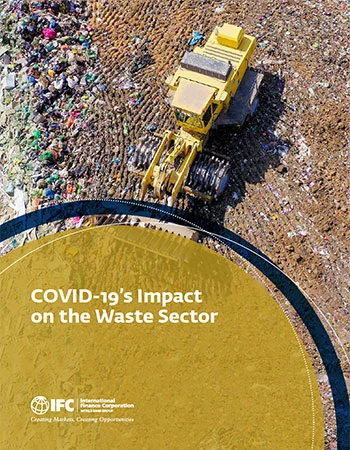Maintaining the delivery of basic urban service—including waste collection and management—is becoming a growing challenge to cities grappling with the fallout from COVID-19.
Every year the world generates over 2 billion metric tons of municipal solid waste. The World Bank estimates that by 2050 annual waste generation will increase by 70 percent—to 3.4 billion metric tons. In low-income countries, the volume of waste is expected to triple by 2050, particularly in sub-Saharan Africa.
The rapid growth of waste generation presents serious challenges in emerging markets. When poorly managed, the waste sector has serious health, safety, and environmental impacts—especially in developing countries, where waste is often burned or discarded in unregulated dumps.
Population growth, urbanization, and economic development all exacerbate these challenges. Given the high costs of sustainable solid waste management (SWM), governments are increasingly partnering with the private sector through public-private partnerships to find sustainable solutions.
Contents
- Sector Background
- COVID-19’s impact on the Sector
- Response to the crisis
- Going forward
This note was made possible through the support of the State Secretariat for Economic Affairs (SECO), a partner of IFC’s Global Cities Platform.
